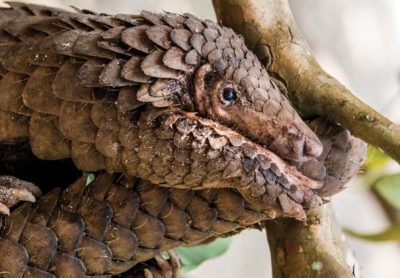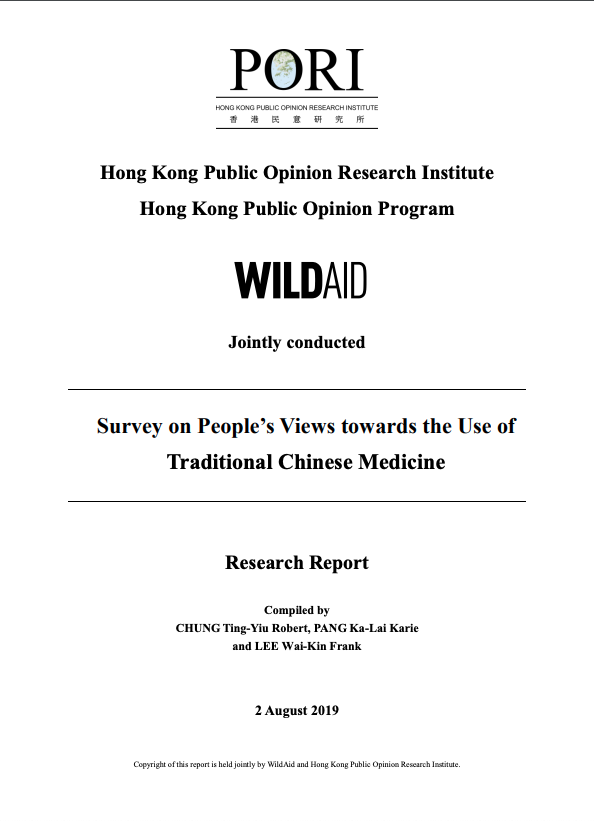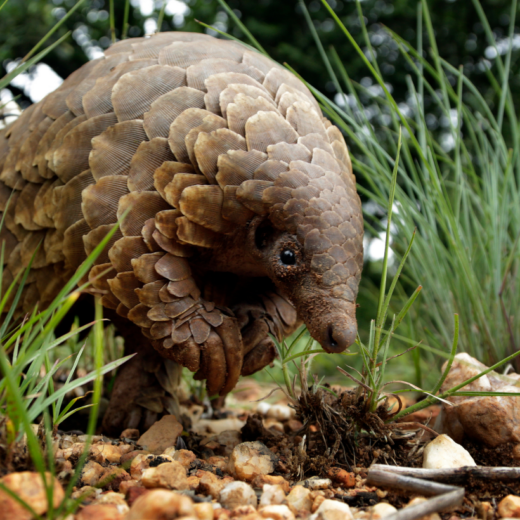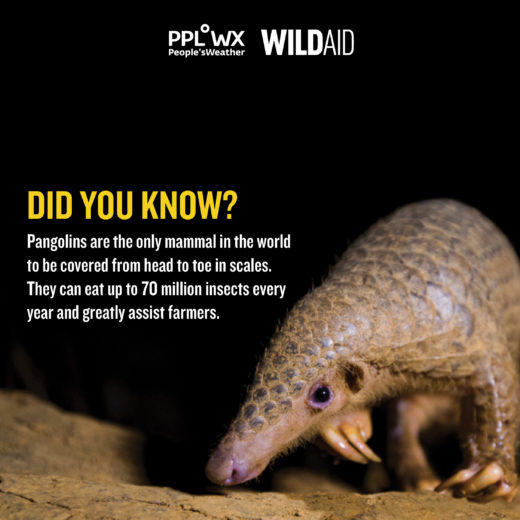
More than two-thirds of the Hong Kong SAR public believes Chinese medicine should phase out the use of pangolins, according to a survey conducted by the University of Hong Kong and global conservation organization WildAid. The survey report was released in Shanghai at the 18th Consortium for Globalization of Chinese Medicine Meeting as China is considering upgrading pangolins to the highest level of national protection.
“China’s consideration of further restrictions on commercial use of pangolins could be a game changer for the most heavily trafficked wild mammal in the world,” said WildAid CEO Peter Knights. “There are sustainable herbal alternatives in traditional medicine and the public seems supportive in shifting away from the use of scales in TCM.”
According to Xinhua, Wu Zhimin, head of the Wildlife Conservation Department of the National Forestry and Grassland Administration, said the “pangolin population showed a marked decline in China because of habitat destruction and rampant poaching” at a meeting in Changsha last week.
Pangolins are currently under class II state protection and used in more than 60 approved drugs to stimulate lactation among new mothers and to treat conditions like swelling and poor circulation.
Over 50 tonnes of illegal pangolin scales have been seized globally in the last four months, often mixed with illegal ivory shipments.
The public survey also showed that a vast majority of the Hong Kong public cares deeply about wildlife and half of all respondents polled in the survey support removing endangered wildlife from TCM.
“As a member of the Traditional Chinese Medicine community, I support removing endangered wildlife from medicine,” said Professor Lao Lixing, Director of the School of Chinese Medicine at Hong Kong University. “With advanced research and cutting-edge technology, the use of sustainable and herbal alternatives has become very possible while the use of endangered species only serves to damage TCM’s reputation.”
Results showed that 96% of respondents agreed that “endangered animal species should be protected,” while 85% agree that “Chinese medicine should phase out the use of endangered wildlife species whilst promoting sustainable and herbal alternatives” and “Hong Kong laws on banning the use of endangered wildlife species in Chinese medicine must be more strictly enforced. Half of all respondents felt that removing endangered wildlife species from Chinese medicine would be good for the reputation of Chinese medicine. Only one-quarter (26%) of the sample agreed that “using endangered animal species in medicine is acceptable”.
An encouraging fact to emerge from the survey was that the Hong Kong public now regards pangolins almost as important to protect as tigers and rhinos, with 2/3 saying it was unacceptable to use products made with rhino (70%) or pangolin (67%) (unacceptability of tiger was slightly higher, at 77%).
The findings suggest that the Traditional Chinese Medicine (TCM) industry should take note of the concerns of the Hong Kong public, which includes many existing TCM users as well as potential users.
Another main finding of the survey was that 52% of respondents claimed they did not use any TCM products. Whilst TCM users were found to have strong opinions on the use of endangered wildlife in TCM, marketers should see this figure as an opportunity to promote the use of sustainable and herbal alternatives to attract more TCM users.
Key Takeaway Messages from the HKU Survey
52% report that they do not use TCM.
– Of the 48% who say they use TCM:
– Only 2% use animal-based medicines
– 22% use TCM but do not know whether it’s animal or plant-based
– 20% use plant-based TCM
96% believe endangered animal species should be protected, and the top reason for TCM users was “the number of endangered animals is reducing and they would become extinct,” while the #1 reason for non-users was “endangered species are precious.”
87% of TCM users think TCM should phase out the use of endangered wildlife species whilst promoting sustainable and herbal alternatives.
The Good News
Pangolin is considered almost as unacceptable for use in TCM as tiger and rhino by Hong Kong residents.
Using endangered animal species in TCM is unacceptable:
Tiger 77%
Rhino 70%
Pangolin 67%
Deer 45%
Seahorse 41%
Overall 63%
- A very high (85%) proportion of respondents believe Hong Kong’s wildlife laws must be strictly enforced and the use of endangered wildlife species must be phased out.
- 93% support using the many effective sustainable herbal alternatives to pangolin scales identified by TCM practitioners in order to protect the endangered animals.
- 50% think removing endangered wildlife from TCM would be good for its reputation.
A Message for the Hong Kong GovernmentOnly 35% think the Hong Kong government provides enough education on protecting endangered wildlife.85% say Hong Kong laws banning the use of endangered wildlife in TCM must be more strictly enforced.


CONTACT INFORMATION:
Alex Hofford, +852 9635 7214 / alexhofford@gmail.com
Lucy-Claire Saunders (English US): +1 213 332 4000 / saunders@wildaid.org
Stay in touch and get the latest WildAid updates.
SIGN UPAbout WildAid
WildAid is a non-profit organization with a mission to protect wildlife from illegal trade and other imminent threats. While most wildlife conservation groups focus on protecting animals from poaching, WildAid primarily works to reduce global consumption of wildlife products such as elephant ivory, rhino horn and shark fin soup. With an unrivaled portfolio of celebrity ambassadors and a global network of media partners, WildAid leverages more than $308 million in annual pro-bono media support with a simple message: When the Buying Stops, the Killing Can Too.
Journalists on deadline may email communications@wildaid.org


